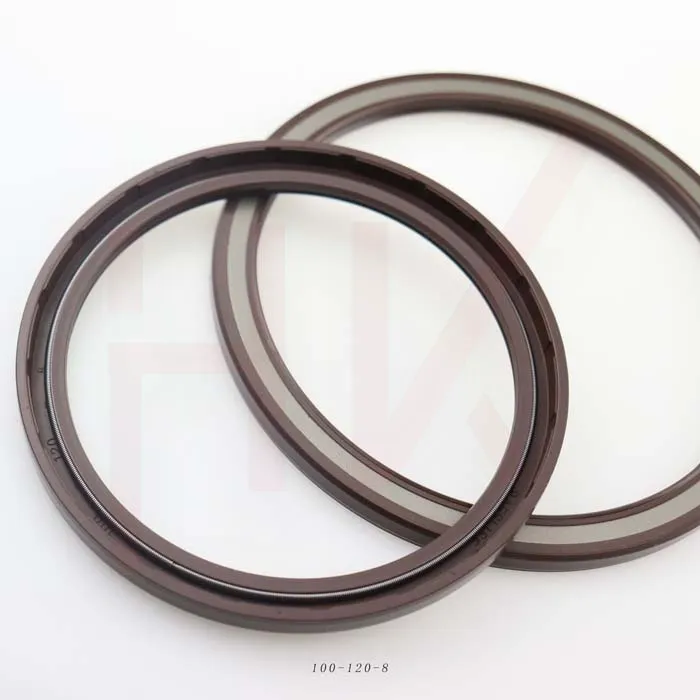Nov . 06, 2024 15:21 Back to list
Understanding the Importance of Wiper Oil Seals in Vehicle Maintenance
Understanding Wiper Oil Seals Importance and Maintenance
Wiper oil seals are critical components in many machinery and automotive applications, playing a vital role in preventing oil leaks and ensuring efficient operation. These seals are designed to maintain a barrier between moving and stationary parts, keeping the lubricant where it belongs and protecting the mechanisms from contaminants. In this article, we will delve into the importance of wiper oil seals, their functionality, common issues, and maintenance tips to ensure they perform optimally.
What Are Wiper Oil Seals?
Wiper oil seals, often referred to as lip seals, are usually constructed from elastomers or polymers designed to withstand various conditions, such as temperature fluctuations, chemical exposures, and mechanical stresses. They feature a flexible lip that makes contact with a rotating shaft, creating a snug fit that prevents fluids from leaking out while also keeping dirt and debris from entering the system.
These seals are commonly found in various applications, including automotive engines, hydraulic systems, pumps, and industrial machinery. Their primary function is to contain lubricants within a designated area while protecting sensitive components from external contaminants.
Importance of Wiper Oil Seals
The significance of wiper oil seals cannot be overstated. Without functioning seals, machinery would be susceptible to oil leaks, which could lead to severe damage over time. Oil leaks not only waste precious lubrication but can also create hazardous situations, especially in vehicles where leaks could potentially lead to engine failure or fire hazards.
Furthermore, wiper oil seals help maintain optimum pressure within hydraulic systems, ensuring they operate efficiently. In automotive applications, they contribute to better fuel efficiency by preventing oil from escaping and maintaining the necessary lubrication for engine components. This, in turn, translates to lower maintenance costs and prolonged machine life.
Common Issues with Wiper Oil Seals
Like any mechanical component, wiper oil seals can encounter problems that may lead to failure. Some common issues include
1. Wear and Tear Continuous movement of the shaft can lead to wear on the lip of the seal, resulting in oil leaks.
2. Dust and Contamination If contaminants penetrate the seal, they can cause abrasion on the sealing surface, leading to premature failure.
wiper oil seal

3. Misalignment Poor installation or misalignment of components can stress the seal, resulting in distortion and leaks.
4. Temperature Extremes Exposure to temperatures beyond the seal's rated limits can lead to hardening or softening of the material, impacting its sealing capability.
5. Chemical Compatibility Incompatibility with certain fluids can degrade the seal material, leading to leaks and system failure.
Maintenance Tips for Wiper Oil Seals
To ensure the longevity and effectiveness of wiper oil seals, regular maintenance is essential. Here are some tips to consider
1. Inspection Regularly inspect the seals for visible signs of wear or damage. Look for cracks, warping, or any signs of oil leakage.
2. Cleaning Keep the area around the seals clean to prevent debris from getting inside. Using a soft brush or cloth can help maintain a clean working environment.
3. Proper Installation Ensure that wiper oil seals are installed correctly according to manufacturer specifications. Misalignment can significantly reduce their effectiveness.
4. Monitor Conditions Be mindful of operating conditions such as temperature and chemical exposure. If conditions change, it may be necessary to replace the seals with ones made from more suitable materials.
5. Replace As Needed Do not hesitate to replace seals that show signs of wear or failure. It is better to act quickly to avoid more significant issues down the line.
Conclusion
Wiper oil seals are a small yet crucial part of many mechanical systems, ensuring that oil remains contained while preventing dirt and debris from entering. Their proper maintenance and timely replacement are essential for the efficient operation of automotive and industrial machinery. By understanding their importance and proactively managing their condition, operators can extend the life of their equipment and prevent costly repairs.
-
TCN Oil Seal Metal Ring Reinforcement for Heavy Machinery
NewsJul.25,2025
-
Rotary Lip Seal Spring-Loaded Design for High-Speed Applications
NewsJul.25,2025
-
Hydraulic Cylinder Seals Polyurethane Material for High-Impact Jobs
NewsJul.25,2025
-
High Pressure Oil Seal Polyurethane Coating Wear Resistance
NewsJul.25,2025
-
Dust Proof Seal Double Lip Design for Construction Equipment
NewsJul.25,2025
-
Hub Seal Polyurethane Wear Resistance in Agricultural Vehicles
NewsJul.25,2025
-
The Trans-formative Journey of Wheel Hub Oil Seals
NewsJun.06,2025
Products categories
















